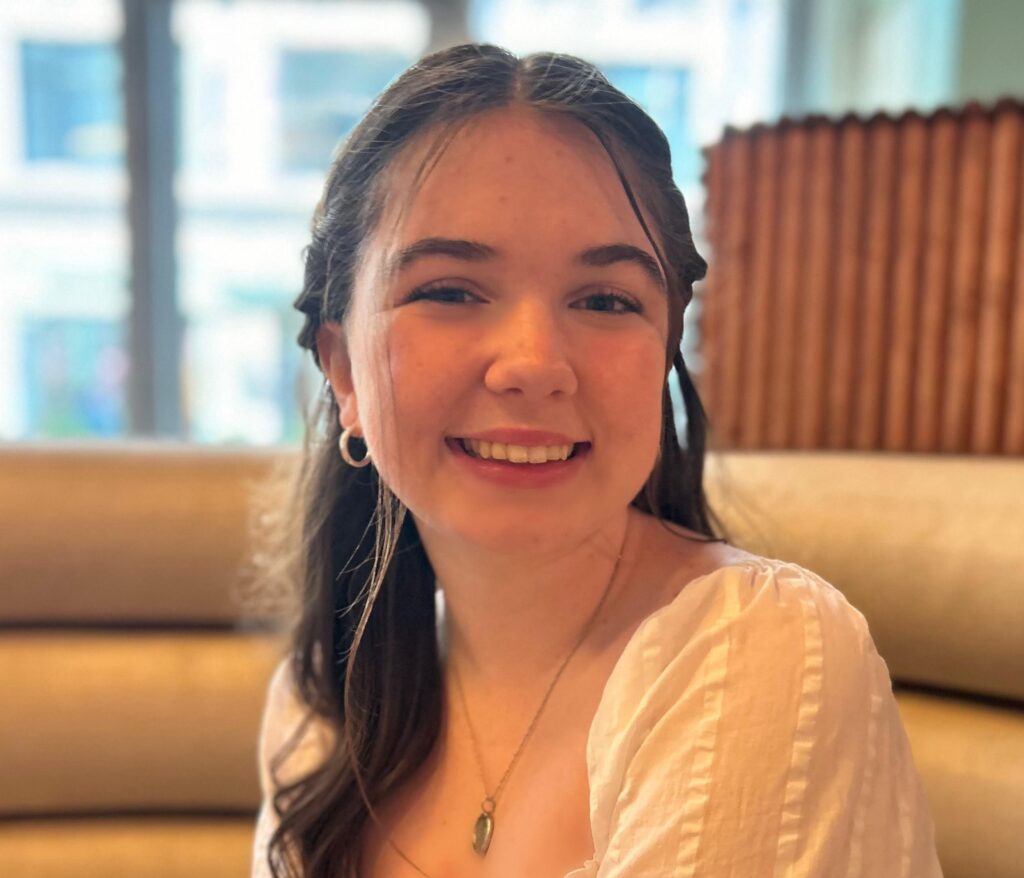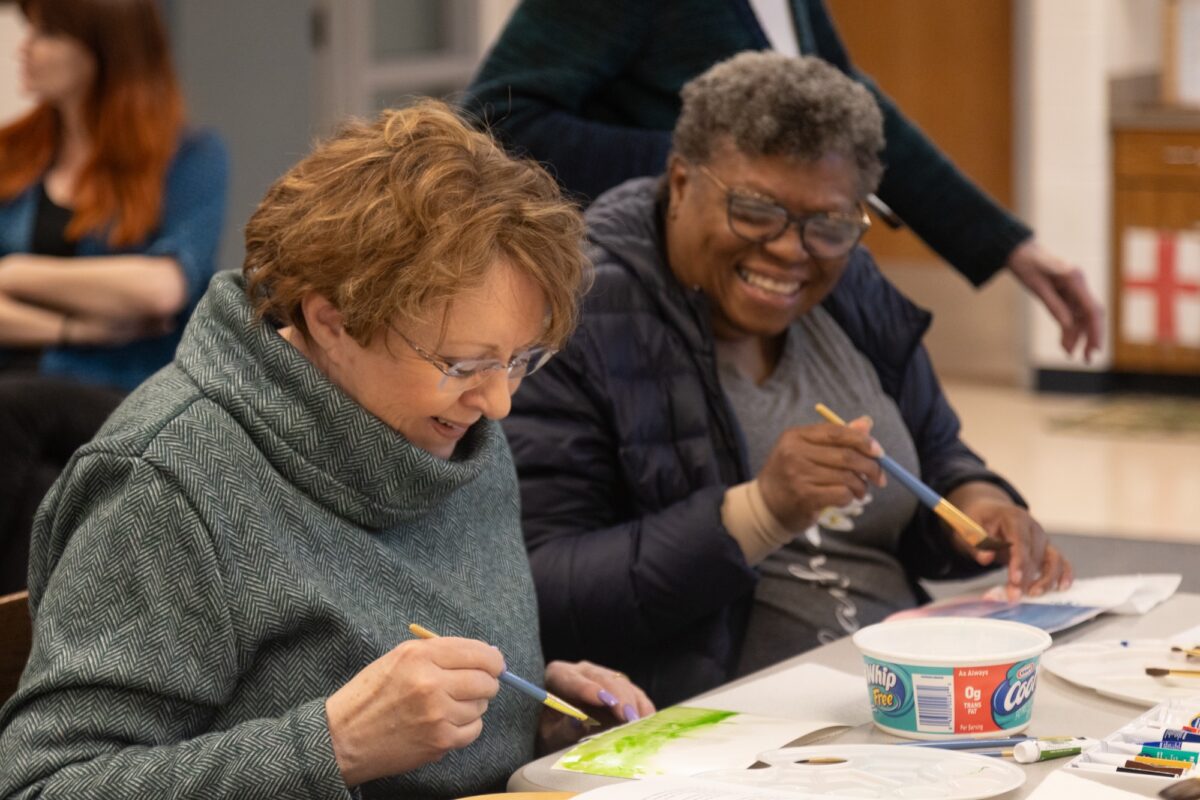by Stella Dougherty

This piece is part of the Detroit Journalism Summer Camp, run by The Detroit Writing Room in partnership with Planet Detroit.
Regardless of where someone receives treatment for cancer in Michigan, the process often leaves patients and their families unsatisfied. While the treatment targets the bad cells and removes the cancer, it doesn’t address the emotional challenges that patients face along the way.
Lynda Ellis, a cancer survivor, understands this process well. Years after her diagnosis, treatment, and becoming cancer-free, she felt that there were still scars to heal.
“It’s very isolating sometimes to live with what you’ve gone through, and you don’t talk to other people or your friends about it besides, ‘I’m fine, I’m fine, everything’s good, I got the OK.’” she says. “It felt freer to be able to discuss a little and be with people who understood.”
To help with her emotional recovery, Ellis turned to Gilda’s Club, a cancer support group with chapters across the country and in three cities in Michigan. Named after the comedian and actress Gilda Radner, who died of cancer in 1989, Gilda’s Club picks up where the chemotherapy sessions and surgeries leave off.
From support groups in Detroit to music classes in Royal Oak, the chapters have the ultimate
goal to nurture the mental health of people being treated for cancer. The club’s website reports that since 1988, Gilda’s Club locations in Michigan have reached more than 10,000 people.
Organizations like Gilda’s Club are part of a growing awareness in the medical community of the emotional challenges that accompany recovery from serious illnesses. Mental Health America reports that rates of major depressive disorder in cancer patients are thought to be up to three times higher than in the general population.
That’s where Singers and Stringers, a Gilda’s Club group that meets at the Royal Oak location, comes in. The group uses music as its avenue toward healing, believing that the sound of strums and gentle voices can convey messages that doctors and hospitals cannot provide. No matter the path through which these individuals discovered music, the strength of the community ties they formed keeps them coming back.
Elaine Plotzke, a ukulele player and breast cancer survivor, says she spontaneously discovered music in Kansas. “I saw a young lady playing the ukulele, and there was a gentleman who was probably 90, and he was just singing his heart out,” she says. “I just thought that was the most beautiful thing I had ever seen, so I just stood there and watched and watched.”
It wasn’t long before Plotzke began taking ukulele lessons, rejoining Gilda’s Club after hearing about their music group.
“Can I play much better than I could play two years ago? Probably not much, maybe a little better, and can I sing any better? I don’t think so,” she says. “But it’s just so much fun to be a part of. It’s just so revitalizing.”
The programs organized by Gilda’s Club staff adapt to the needs of the community.
LaShawnda Greenwood, a program manager, explains the options for cancer patients: “You can join at any point. You can join after diagnosis or during survivorship. At every stage in a person’s journey, there is someone who is going through a similar circumstance.”
This simple shared experience is what provides comfort for many Gilda’s Club members. Part of the shared experience is navigating the treatment process, with its complex medical terminology and appointment schedules.
Liz Edwards, a longtime volunteer and supporter, became interested in Radner and her story while living in Los Angeles, where she often tried to spot Radner at the offices where she received cancer treatment. Soon after Edwards returned to Detroit, her hometown, she attended the opening of the Royal Oak location in 1992 and began volunteering for many years there.
“Being in a group, you can hear what other people are going through, you can share what you have gone through, and see if it’s something similar,” she says. “You can get little tips on what to do.”
Edwards herself is a former X-ray technician and has seen both the medical and emotional sides of cancer experiences for patients. The value she finds in community comes from hearing how different patients went about their treatment journeys.
She has some advice for cancer patients who are just starting: “Ask for a second opinion. Don’t let them pat you on the head and say, ‘Come back in six months.’ Get your second opinion down. Your guts know. Being a part of groups in that way is very helpful.”
It’s this connection with others who are going through treatment, she said, that allows the conversation to occur naturally. For many cancer patients, survivors and their families, this awareness begins at Gilda’s Club.

Stella Dougherty is a senior at Clarkston High School in Clarkston, Michigan. She is interested in journalism because she wants to use her creativity to convey important messages about current events locally and around the globe. In her free time, she enjoys painting sets for her high school drama club, playing the viola, reading and drawing. After high school, Stella hopes to pursue journalism or a topic in the humanities in college.


